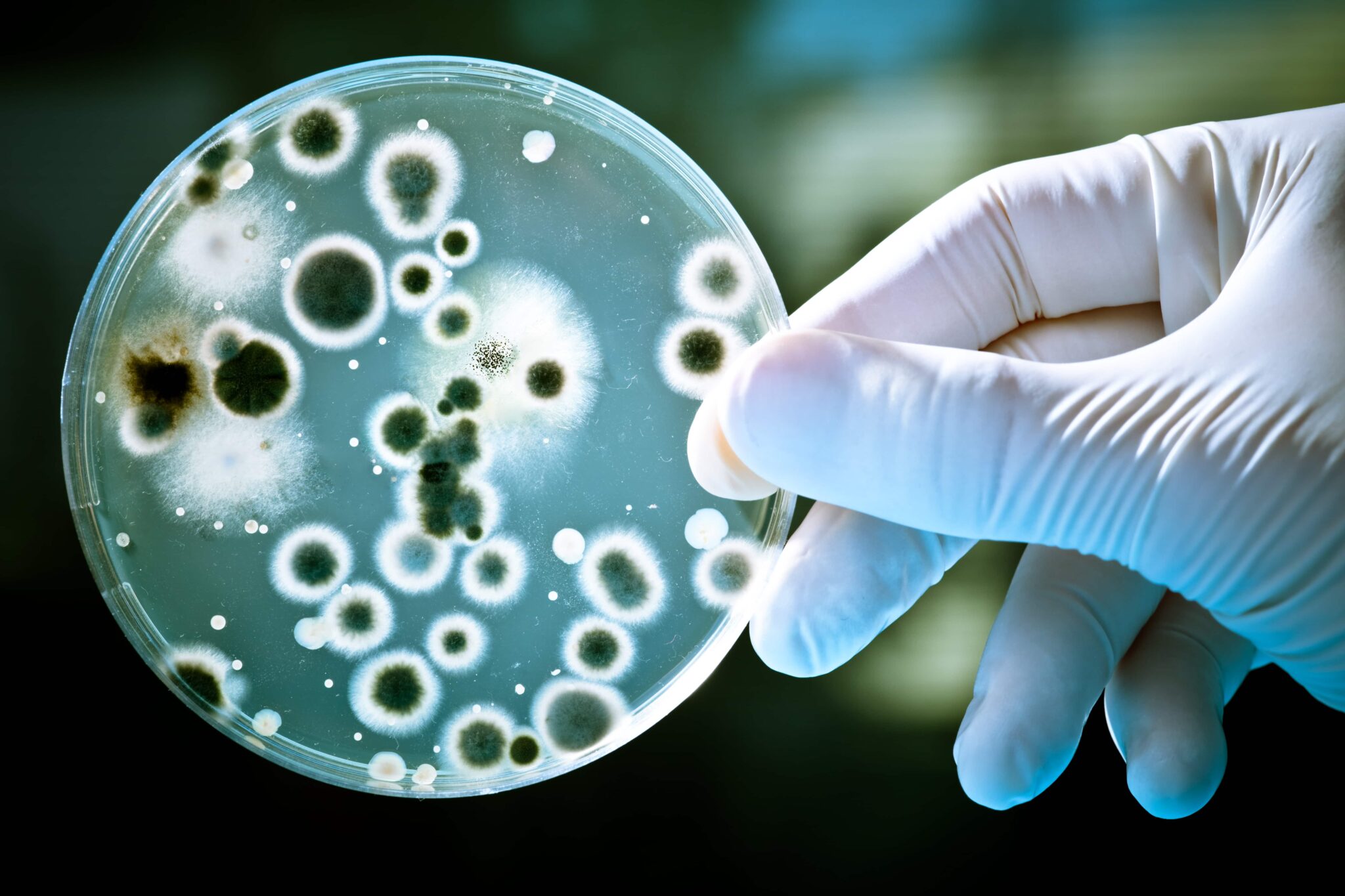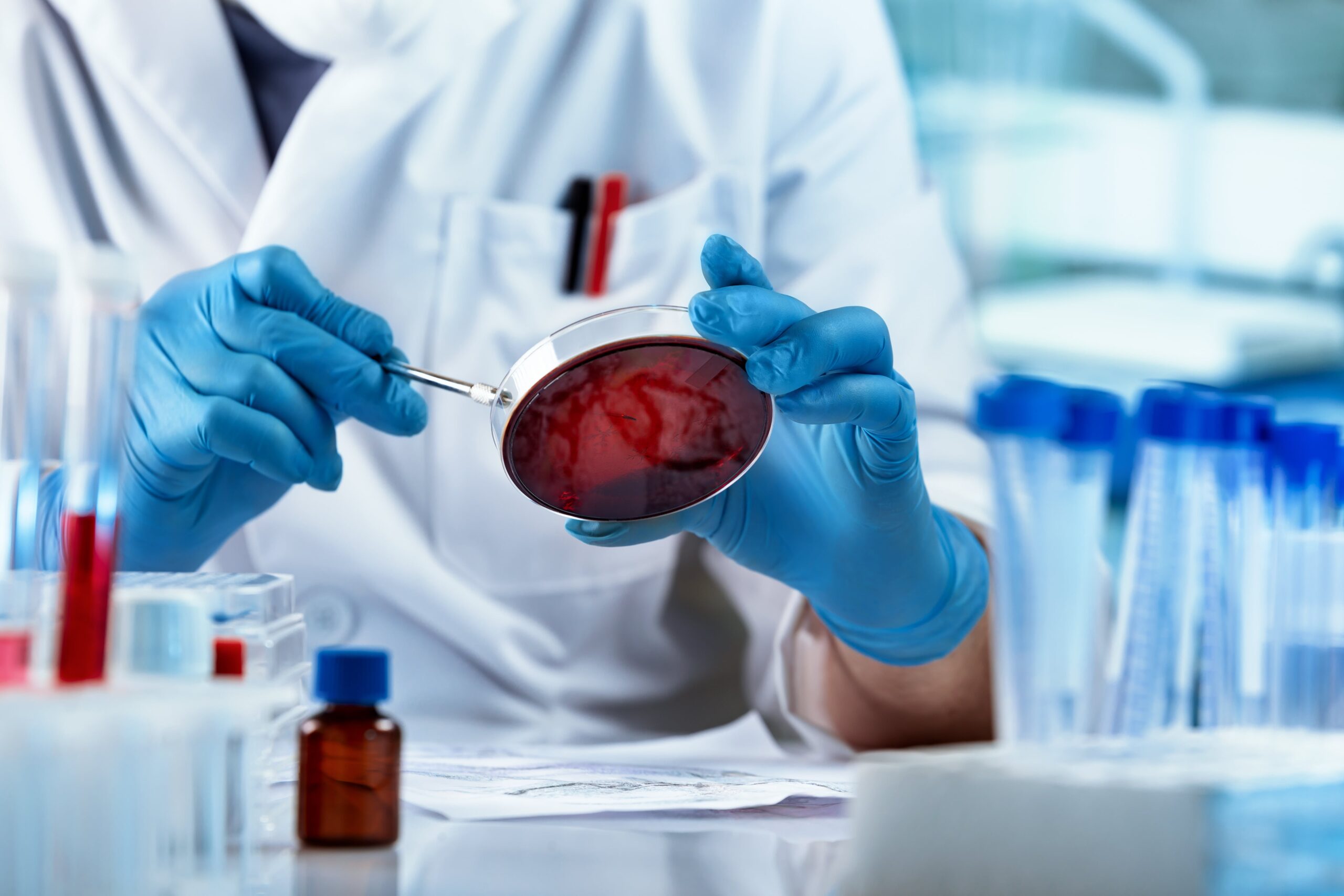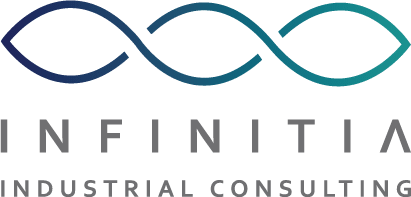Microbiology, antimicrobial efficacy and biofilm tests
INFINITIA Industrial Consulting offers a specialised service in microbiology, antimicrobial efficacy and biofilm testing, essential to evaluate the ability of materials, coatings and products to inhibit microbial growth. Our industrial laboratory has experts in microbiology and state-of-the-art equipment to perform accurate tests and ensure compliance with international standards.
Find out more about this type of testing, which is key for industries such as food, pharmaceuticals, biomedical and advanced materials, where microbiological control is a critical requirement for product safety and functionality.
What are microbiology, antimicrobial efficacy and biofilm tests?
Microbiological tests are used to evaluate the presence, growth and elimination of micro-organisms on various materials and surfaces. In particular, antimicrobial efficacy tests analyse the ability of certain treatments, coatings or products to inhibit or eliminate bacteria and fungi.
The study of biofilm is crucial. These communities of micro-organisms adhering to surfaces are highly resistant to conventional treatments and represent a challenge in sectors such as healthcare and the food industry. At INFINITIA we characterise and evaluate biofilm formation under different conditions, contributing to the optimisation of disinfection and microbiological control strategies.
We apply advanced techniques to study microorganisms in different materials and environments. We have microbiological culture equipment, spectroscopy, advanced microscopy and bacterial inhibition assays, which allow us to obtain precise data on the antimicrobial activity of different compounds.
Our specialists analyse bacterial and fungal growth conditions, validating the ability of the materials to prevent microbial growth. In addition, we perform specific tests for the elimination of biofilms, optimising disinfection strategies in key sectors such as hospital, food and pharmaceutical.


Benefits of microbiology and antimicrobial efficacy testing
The development of microbiological and antimicrobial efficacy testing brings numerous advantages in different industries. Some of these include:
- Security assurance and regulatory compliance: Verification of the efficacy of materials and products according to international standards.
- Optimisation of antimicrobial treatments: Evaluation of coatings and biocidal compounds to improve their effectiveness.
- Prevention of microbiological contamination: Early detection of micro-organisms and development of strategies for their control.
- Microbial resistance assessment: Determination of the effectiveness of antimicrobials and biocides against resistant bacteria.
Types of microbiology, antimicrobial efficacy and biofilm tests
We are experts in microbiological analysis. We develop different microbiological tests to characterise the presence and behaviour of microorganisms on products and surfaces. Our objective is to evaluate the impact of bacteria, fungi and other microorganisms on different materials, ensuring their safety and functionality.
1. Microbiology and microbial contamination testing
These tests are used to analyse the presence of micro-organisms on products and surfaces in order to identify possible contamination. They are often performed in sectors such as the food, pharmaceutical and hospital industries, where industrial hygiene and microbiological control are critical.
The procedure involves sampling by techniques such as swabs, filtrations or cultures on selective media for the identification of specific micro-organisms. Methods such as colony forming unit (CFU) counts are used to quantify the microbial load and tests for pathogens such as Escherichia coli, Salmonella or Listeria monocytogenes.
2. Antimicrobial efficacy and biocidal effect tests
This type of test evaluates the ability of a material, treatment or product to inhibit or eliminate micro-organisms. They are applied to medical devices, antimicrobial textiles, biocidal coatings and industrial disinfectants.
Methodologies used include ISO 22196 (JIS Z 2801), which measures the antimicrobial activity of treated surfaces, and disinfection capacity tests which evaluate the bactericidal and fungicidal action of substances applied under specific conditions. In these tests, micro-organisms are exposed to the test substance and their viability is measured before and after exposure.
3. Biofilm and microbial resistance testing
Biofilms are colonies of micro-organisms that adhere to surfaces and form a protective layer, which makes them highly resistant to biocides and disinfectants. In our case, we carry out tests to evaluate the formation and elimination of biofilms in different environmental conditions, allowing us to improve cleaning and disinfection strategies in industrial and sanitary sectors.
These trials include:
- Biofilm formation study, where the conditions that favour their growth on surfaces of interest are analysed.
- Biofilm removal tests, in which different antimicrobial agents are tested for efficacy.
- Biocide resistance testing, that evaluate the persistence of biofilms in the face of conventional and advanced disinfectant treatments.
4. Hygiene testing and microbiological control of surfaces
This type of testing allows verification of the effectiveness of cleaning and disinfection protocols in industrial, hospital and food production environments. Techniques such as surface swab sampling, contact plates and ATP (Adenosine Triphosphate) analysis are used to assess the presence of bioburden in critical areas.
In addition, hygiene maps allow the analysis of critical contamination points in factories and hospitals, identifying areas with a higher risk of bacterial proliferation and optimising cleaning procedures.
Applications of microbiology, antimicrobial efficacy and biofilm tests
Microbiological testing has key applications in various industrial sectors, helping to improve the safety, functionality and durability of products. The following are some of the sectors where these tests play an essential role.
1. Food industry
The food industry is one of the most regulated industries in terms of microbiology, as any contamination by micro-organisms can compromise the health of consumers. In this sector, microbiology testing is used to:
- Microbiological control of raw materials and finished products, ensuring that food is free of dangerous pathogens.
- Evaluation of biofilms in production lines, as bacteria can form resistant layers on processing equipment and surfaces, compromising hygiene.
- Validation of cleaning and disinfection strategies, testing the effectiveness of biocides and sanitisers used in production environments.
2. Pharmaceuticals and cosmetics
In the pharmaceutical and cosmetics industry, it is essential that products are free from microbial contamination and that preservatives are effective in preventing the growth of micro-organisms. In this field, microbiological testing allows:
- Assessing the efficacy of antimicrobial preservatives in pharmaceuticals and cosmetics.
- Validate disinfection processes in laboratories and factories, ensuring sterile production environments.
- Carry out microbiological stability tests, ensuring that products maintain their safety over time.
3. Hospital and medical device sector
Hospitals and clinics are environments where microbiological control is critical to prevent the spread of nosocomial infections. In this sector, microbiological testing is applied in:
- Validation of antimicrobial coatings in medical devices and hospital furniture, reducing the risk of infections.
- Efficacy testing of hospital disinfectants, proving its effectiveness against resistant pathogens.
- Microbiological control of environment and surfaces, ensuring that operating theatres and critical areas are safe for patients.
4. Advanced materials and technical textiles:
The development of antimicrobial materials is a growing trend in multiple industries. Biocidal properties are sought to be incorporated into surfaces used in transportation, architecture, workwear and medical devices. In this context, the tests allow:
- Evaluating antibacterial textiles used in hospitals, personal protective equipment and workwear in the food industry.
- Testing antimicrobial activity in coatings for contact surfaces, such as door knobs, railings and touch screens.
- Developing new materials resistant to microbial contamination, optimising its functionality and durability.
5. Water industry and surface treatment
Microbiological control of water is essential for its quality control and prevention of the proliferation of dangerous bacteria such as Legionella pneumophila. In this sector, microbiological tests are used for:
- Detecting micro-organisms in drinking and industrial water systems, ensuring compliance with health regulations.
- Assessing the efficacy of biocides in water treatment, reducing the risk of biofilm formation in piping and filtration systems.
- Monitoring microbial contamination in cooling systems and cooling towers, preventing public health problems.
Innovation and precision in microbiological testing: INFINITIA is your microbiology laboratory.
Microbiology, antimicrobial efficacy and biofilm tests are essential tools. Through scientifically validated methodologies, these assays allow the detection and quantification of microorganisms, the evaluation of the effectiveness of antimicrobial treatments and the optimisation of microbiological control strategies.
At INFINITIA we have a team of experts in microbiology and materials, together with cutting-edge technology, to offer solutions adapted to the needs of each industry. In addition, our focus on applied research allows us to anticipate microbiological challenges, developing innovative strategies for the prevention of biofilms and bacterial resistance. Here are some examples of work where we have applied microbiology testing:
- Characterisation of antibiofilm properties on surfaces
- Evaluation and optimisation of a new steam disinfection device for textiles and surfaces
- Accelerated biofilm generation and life testing
- Corrosion and stain analysis on stainless steel
- Benchmarking of antimicrobial treatments
- New materials through surface finish modifications in plastics
The future of microbiological and biofilm testing is marked by the advancement of more accurate and efficient technologies, such as high-resolution microscopy, genetic detection methods and the integration of artificial intelligence for microbiological data analysis. At INFINITIA we are committed to the evolution of these processes, ensuring that our customers are provided with state-of-the-art solutions.
If your company needs to guarantee the microbiological safety of its products, validate the efficacy of antimicrobial materials or develop new solutions for the control of biofilms, INFINITIA is your strategic ally. Contact us to find out how our tests can add value to your business and ensure compliance with the most demanding regulations in the market.
